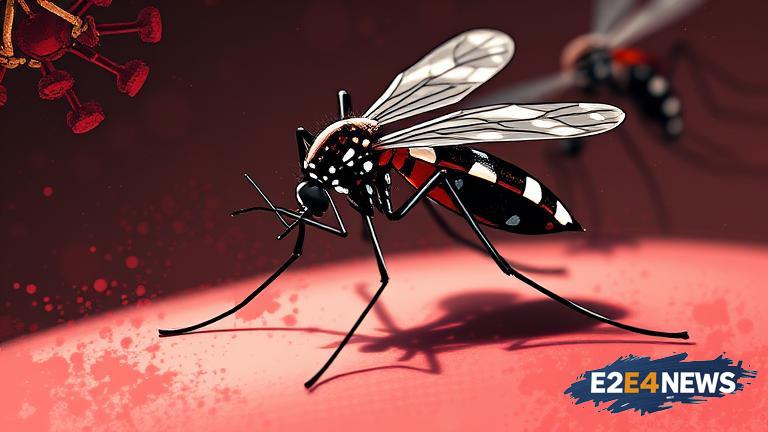Wisconsin is experiencing a significant surge in mosquito populations this summer, and experts are warning residents to take necessary precautions to protect themselves from disease-carrying insects. The wet weather has created ideal breeding conditions for mosquitoes, leading to an increase in their numbers. As a result, the risk of mosquito-borne diseases such as West Nile virus, Zika virus, and La Crosse encephalitis is higher than usual. According to health officials, the state has already seen a rise in reported cases of mosquito-borne illnesses. The Wisconsin Department of Health Services has issued a warning, advising residents to take steps to prevent mosquito bites. This includes wearing insect repellent, covering exposed skin, and avoiding peak mosquito hours. Experts also recommend eliminating standing water around homes, where mosquitoes can lay their eggs. Residents are advised to check their properties for potential breeding sites, such as pet water dishes, bird baths, and clogged drains. By taking these precautions, Wisconsinites can reduce their risk of contracting a mosquito-borne disease. The surge in mosquito populations is not limited to Wisconsin, as other states in the Midwest are also experiencing similar issues. The wet summer has created a perfect storm for mosquito breeding, and experts predict that the problem will persist until the weather dries up. In the meantime, residents are urged to remain vigilant and take necessary precautions to protect themselves and their families. Mosquito-borne diseases can have serious consequences, including neurological damage, birth defects, and even death. Therefore, it is essential for residents to take the threat seriously and take proactive measures to prevent mosquito bites. The Wisconsin Department of Health Services is working closely with local health departments to monitor the situation and provide guidance to residents. The department is also conducting surveillance to track the spread of mosquito-borne diseases. By working together, health officials and residents can reduce the risk of disease transmission and keep communities safe. In addition to individual precautions, communities can also take steps to prevent mosquito breeding. This includes implementing mosquito control measures, such as larval control programs and adult mosquito control. By taking a comprehensive approach, Wisconsin can mitigate the impact of the mosquito surge and protect public health. The situation is being closely monitored, and residents are advised to stay informed about the latest developments. As the summer continues, it is essential for Wisconsinites to remain vigilant and take necessary precautions to protect themselves from disease-carrying mosquitoes. By doing so, they can enjoy the outdoors while minimizing their risk of contracting a mosquito-borne disease. The Wisconsin Department of Health Services will continue to provide updates and guidance to residents as the situation evolves. In the meantime, residents are urged to take proactive measures to prevent mosquito bites and protect their communities from the risks associated with mosquito-borne diseases.
